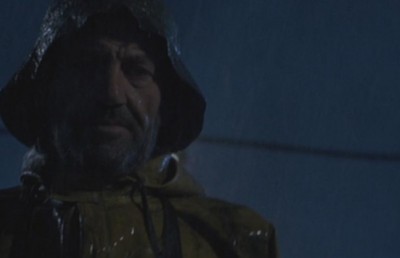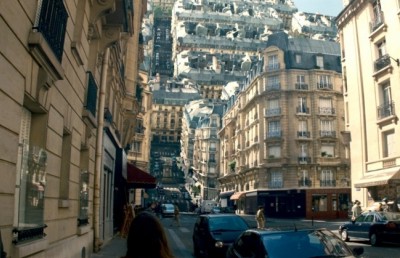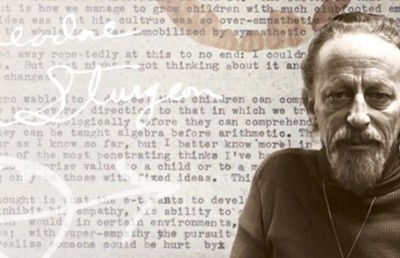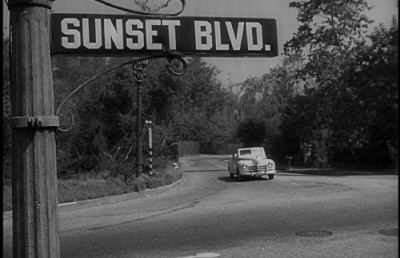Green Zone and the Struggle for Truth in Political Filmmaking
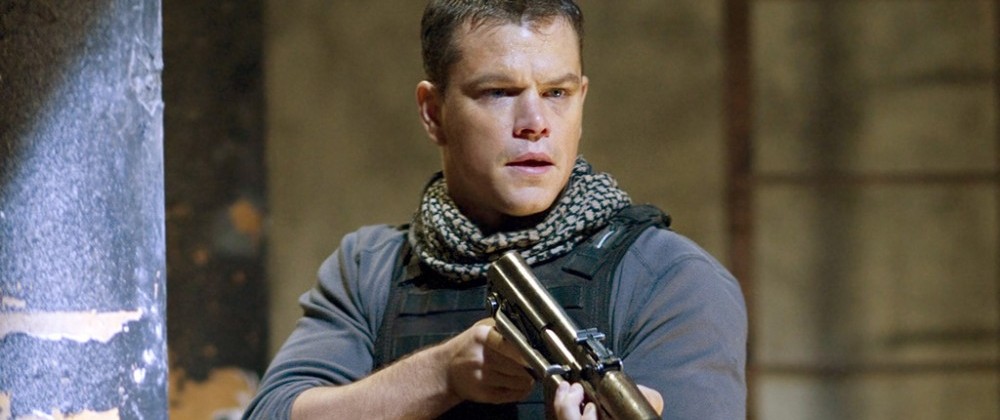
Functioning as an amalgamation of director Paul Greengrass’ documentary-like recreation dramas (Bloody Sunday, United 93) and his intelligent, politically infused action spectacles (The Bourne Supremacy, The Bourne Ultimatum), Green Zone is released hot on the heels of The Hurt Locker winning big at the Academy Awards.
Where The Hurt Locker was largely apolitical, a study of the psychology of men trying to survive physically and emotionally in the super high stakes world of an army bomb disposal unit, Green Zone is far more ambitious in attempting a genuine illumination of the early days of the Iraqi occupation focusing particular attention on the search for WMDs (and in doing so Greengrass does not let issues such as verisimilitude of army protocol get in his way in addressing his agenda).
The first thing the viewer notices as soon as the film gets underway is that Greengrass’ ability to create an adrenaline high has not faded. The film is propulsive. There is no better director of action in cinema today than Greengrass and Green Zone does not disappoint in this regard. In support of this, John Powell, Greengrass’ regular composer, creates another pounding score which further bolsters the momentum.
Green Zone is said to be based on Imperial Life in the Emerald City, Rajev Chandrasekaran’s superb journalistic record of the first two years of post-invasion Iraq, but viewers will quickly notice that Greengrass and writer, Brian Helgeland, have grafted a fictional story onto the Chandrasekaran informed universe. In this regard the film superbly recreates these early days of the occupation, highlighting the difficulties faced by the coalition forces and the major miscalculations they made. This covers the inability or unwillingness to prevent mass looting and anarchy which severely undermined the countries already fragile infrastructure, the decision to fire the entire republican guard who could have helped police the newly ‘free’ and effectively ungoverned state, the lack of ability to maintain a base infrastructure capable of supporting basic needs such as access to water and energy, the mistaken assumption that an Iraqi exile who had not lived in the country for decades would be accepted by community leaders as a suitable candidate to lead the new Iraq with all its sectarian difficulties, the infighting within the coalition as to how best to address these issues, the nepotism employed by the republican party in assigning responsibility for remaking Iraq to under qualified individuals, the retraction from the people and streets of Iraq by the coalition forces behind Saddam’s palatial walls, the institutionalised maltreatment of the Iraqi’s by the allied army, the implication that the media did not play their role in informing the public in a neutral manner (Amy Ryan’s character, Lawrie Dayne, is a clear reference to Judith Miller, just as Greg Kinnear’s Clark Poundstone is clearly an analogy for Paul Bremer), and so on. If this all sounds rather complex and overly dense, it is not. In Greengrass’ hands all the above are deftly woven into the background of the narrative, which is Matt Damon’s Captain Roy Miller searching for WMDs and the truth behind the intelligence which keeps his teams coming up empty.
Damon, by now a proven leading man of the highest standards, combines intelligence, moral integrity and determined physicality, reminiscent of a younger Denzel Washington or Russell Crowe. The acting across the board is excellent in fact, Brendan Gleeson and Kinnear being always watchable and reliable, Yigal Naor and Khalid Abdalla are superb, and Jason Isaacs puts in a great turn with a limited caricature of a role which he makes memorable.
So, if the action, the recreation of time and place, the acting, the score and generally the production values are all superb, what is the problem? Well, there is one, and it is, unfortunately, a big one.
For a film which takes as its central moral message that the truth is always the most important thing, it makes up a lie at the centre of its storyline. Green Zone, claims that the intelligence on WMDs was not just utterly flawed and demonstrably wrong (which is, with the advantage of hindsight, obvious and surely dramatic enough), but was, in fact, manufactured by the US government in order to pursue its invasion agenda. In order to say something important about the Iraq War, which this film attempts to do, it simply will not do to just make up the facts in order to better suit your position. Incompetence cannot and should not be confused with conspiracy – a trap that Greengrass so consciously side stepped in United 93.
Some may argue, probably in general correctly, that it is the filmmakers right to weave fact and fiction together in order to tell an appropriately cinematic story. It none the less feels disappointing, given the meticulously careful reconstruction of Saddam’s Iraq unravelling at the seams. I, for one, find it difficult to believe that the genuine history of the Iraq war is not dramatic enough such that a pre-requisite of a suitably exciting and engaging film is to alter fundamentally the course of events in order to create an appropriately theatrical storyline.
I have immense sympathy with John Lloyd in his book What the Media are Doing to Our Politics, in which he argues that, en masse, the media have given up any attempt to report the news in a neutral and informative manner. Instead they now operate as an unaccountable alternative establishment, promoting distrust of politicians and consciously disregarding the complexities, difficulties and stresses of the geo-political decision making process. Lloyd cites the coverage of the Hutton enquiry as an example of this but we could also look to the Chilcot enquiry which took place around the same time as the release of the film in which coverage by the UK media took as self-evident that any justification for invading Iraq War was, by definition, immoral and neoconservative. The degree of oversimplification and misinformation on Iraq is already problematic and the invention of a WMD conspiracy at the heart of Green Zone adds fuel to the fire. As an example we can look to Andrew O’Hagan’s review of the film in The London Evening Standard in which he says that the film “exposed the terrible lies that stood behind the decision of the US and Britain to prosecute the war.” [1] Andrew is not alone in his inability to recognise, or at least articulate that he recognises, the difference between actual political events as they happened and the manner in which they are portrayed in the film. Indeed, the film tended to polarise critical response with the few who did recognise the conceit at the heart of the film generally dismissing the film in its entirety. [2] Philip Kemp’s review in Sight & Sound appears to be one of the few that recognises the successes of the film but laments the need to fictionalise the storyline and further misdirect viewers away from attaining a genuine understanding of the invasion, “The book [Rajiv Chandrasekaran’s Imperial Life in the Emerald City], offers a classic instance of the cock-up theory of history. Cock-up theory, though, doesn’t make for very effective thriller material. So Greengrass and his screenwriter Brian Helgeland have gone for its chief rival in the historical explanation stakes, conspiracy theory.” [3]
The post-invasion strategy was unforgivably badly handled and the coalition forces should be held to account for it but the film already paints this picture so effectively that by remaking history to serve a political end, the righteous anger of the film is undermined and rendered fraudulent. The manufactured conspiracy effectively removes the need for debate by eliminating any doubt that the reasons for invading were corrupt and for material gain (the closing shot of the film of the oil rigs makes this connection crudely apparent).
In making this error, the film makes exactly the same mistake as the Bush administration which is to draw all attention around the validation of the invasion towards issues of imminent security threats and away from the equally if not more important humanitarian arguments for regime change, saving a people from a tyrannical dictator who has carried out genocide on both his own people and his neighbours. Viewing the invasion with this in mind, the human rights abuses committed by the US army are even more tragic and the mismanagement of the coalition forces even more urgently frustrating.
In this regard Green Zone does make some efforts to address the psychology of the people of Iraq primarily through the character of Freddy, whose journey becomes intertwined with Miller’s, and who is unforgiving in his recollection of what Saddam’s men have done to the country and feels simultaneously grateful, mortified and let down by his liberators. His combination of bravery, shame and embarrassment at having to interrogate his fellow countrymen, his heartfelt desire to help create a better country and his disappointment in the new US governing force leads to some of the most moving moments in the film.
It is too bad that the film is not able to live up to the moral and epistemological authenticity that it so heartily argues for. It undermines so much good work in what is the first film to try to intelligently address the difficult question of whether it was right to go to war in Iraq or not, especially given the lack of post regime change planning. This is a shame as the film raises interesting and important questions, not least the moral dilemma faced by the pro geo-political intervention position – in pursuing regime change as a political end how should the intervening forces address the pre-existing establishment and infrastructure set up by those in power who have used these systems heretofore to abuse their subjects and maintain their dominance? With this in mind, I have not seen anyone in Hollywood more capable than Greengrass of making what would be an interesting sequel – covering General Petraeus’ ‘surge’ tactics in taming the insurgency and creating the environment in which the imposition of self governed security, infrastructure and elections with 75% turn out became a genuine possibility. Perhaps the Green Zone follow up, which paints Iraq as either a shining beacon for democracy in the Middle East or a failed and costly (in terms of lives and money) experiment in open society state-creation, needs events to unfold further before a story with a genuine conclusion can be reached.
Endnotes
3 Philip Kemp, Sight & Sound, April 2010, Volume 20, Issue 4, p57.



